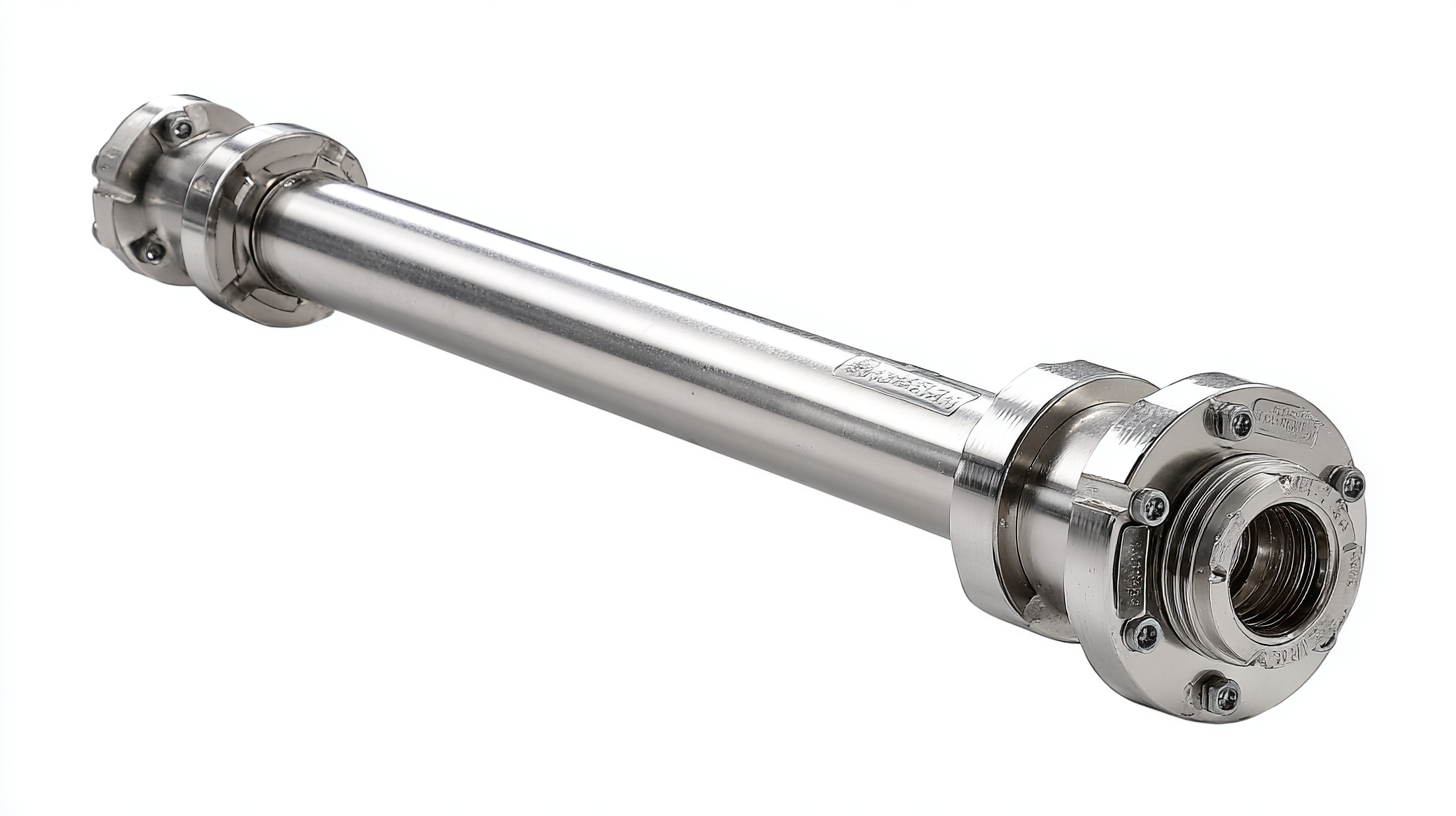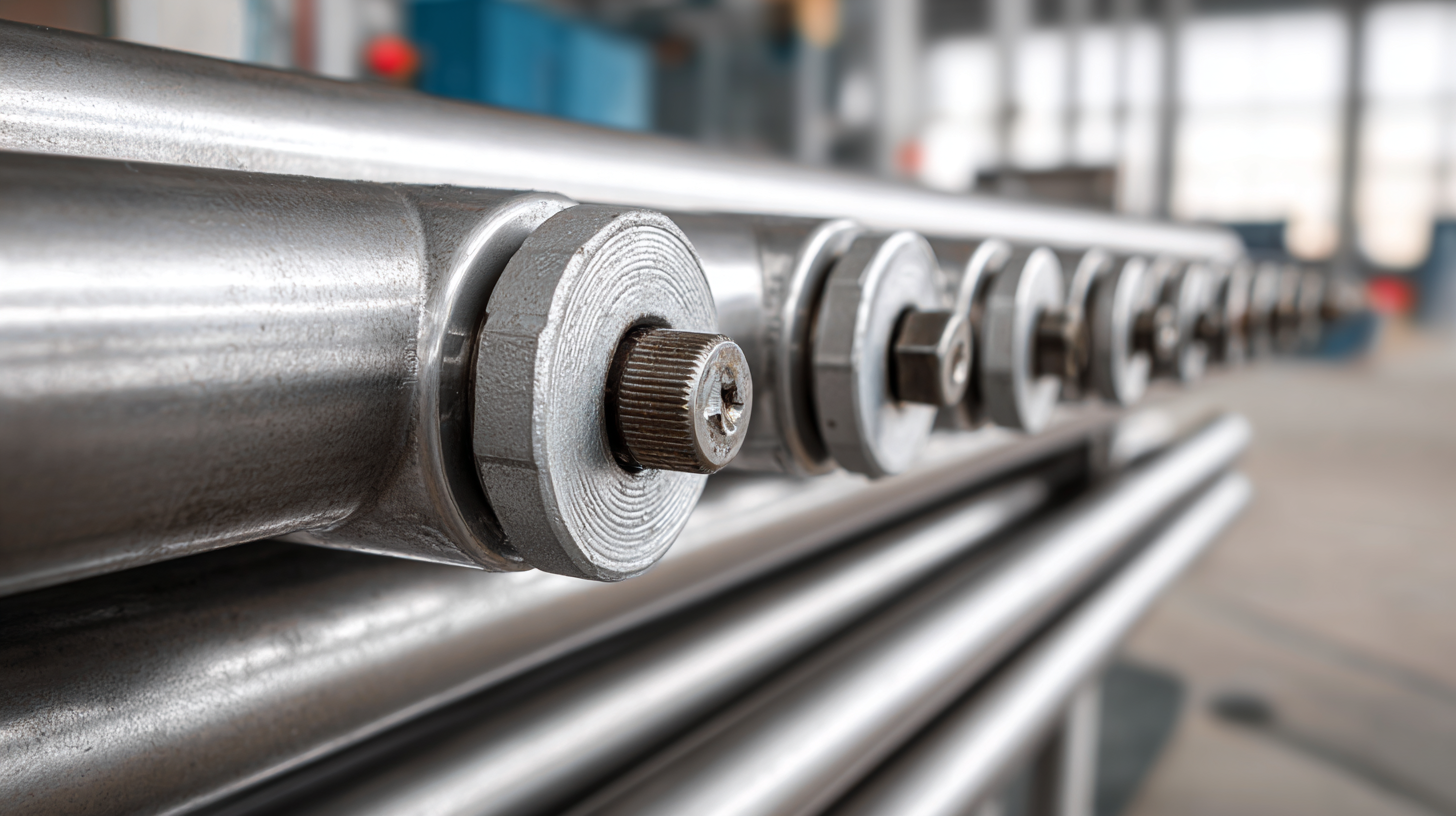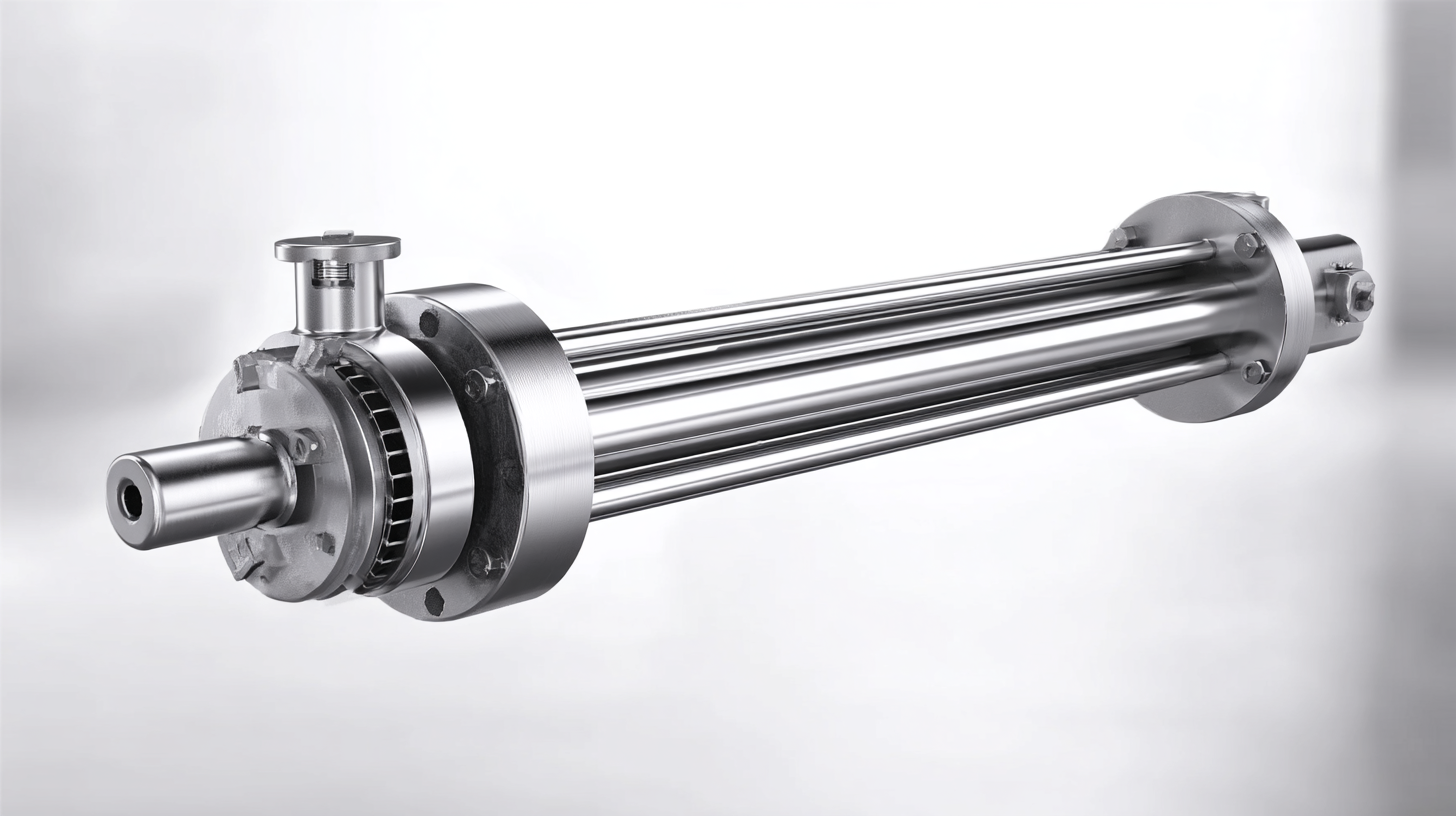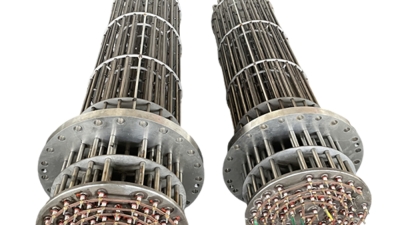Ultimate Guide to Choosing the Best China Flange Immersion Heater for Your Needs
Table of Contents
- Factors to Consider When Selecting a China Flange Immersion Heater
- Top Reasons Why Flange Immersion Heaters Are Ideal for Various Applications
- 5 Key Features to Look for in a Reliable Immersion Heater
- Understanding Heat Capacity: Choosing the Right Wattage for Your Needs
- Cost vs. Quality: How to Find the Best Value in Immersion Heaters
- Common Mistakes to Avoid When Buying a Flange Immersion Heater
- Maximize Efficiency and Safety with Flange Immersion Heaters: A Comprehensive Guide
- FAQS
- Related Posts
You know, in today’s fast-changing industrial world, there’s been a real uptick in the need for efficient heating solutions. It’s pretty exciting — reports even suggest that the global market for immersion heaters is expected to see some serious growth in the upcoming years. One standout in this space is the China Flange Immersion Heater, and honestly, it’s well-regarded for being reliable and pretty versatile across different applications.

Companies like Jiangsu Weineng Electric Co., Ltd. are really leading the charge here, offering specially designed electric heaters that meet pretty strict safety and performance standards. Weineng, in particular, is a high-tech company focused on explosion-proof electric heaters, bringing loads of experience in everything from design to production and commissioning.
They make it easier for businesses to pick the right heating solution tailored to their unique needs. This guide’s here to help you understand what to look for when choosing the best China Flange Immersion Heater — because, at the end of the day, it’s all about boosting your operational efficiency and keeping things safe in your industrial processes.
Factors to Consider When Selecting a China Flange Immersion Heater
When you're choosing a China flange immersion heater, there are a few key things you really want to keep in mind to make sure it fits your heating needs perfectly. One important factor is the watt density — that's usually measured in watts per square inch. Industry insights suggest that finding the right watt density can make a big difference, not just in how efficient the heater is, but also in how long it lasts. For instance, aiming for a watt density around 10 to 12 watts per square inch is usually a good rule of thumb for heating water. If you're dealing with thicker, more viscous fluids, you might want to go for lower densities instead.
Another thing to think about is the material used for the heating element. Flange immersion heaters are typically made from materials like stainless steel or titanium. These materials are popular because they resist corrosion really well and can survive tough environments. According to a market report I came across, stainless steel heaters make up about 65% of the market—mainly because they’re durable and budget-friendly. Titanium heaters, even though they tend to be more expensive, are often the go-to choice in super corrosive settings. So, really, choosing the right material depends a lot on what exactly you're working with. Taking these factors into account can help you get the most out of your heater, making it last longer and work more efficiently in the long run.
Top Reasons Why Flange Immersion Heaters Are Ideal for Various Applications
You know, flange immersion heaters are really catching on across different industries lately, and for good reasons. They’re super versatile and work efficiently, making them perfect for tasks like heating liquids or running industrial processes. What’s pretty cool is that according to industry folks, these heaters can cut down energy use by up to 20%. That’s a big deal because it saves money and helps the environment too.
Plus, with all the recent tech improvements—like thinner, more flexible designs—they’re much easier to install, even in tight spots. These modern heaters can bend and wrap around different setups, which helps spread heat evenly and avoids those annoying hot spots. That’s especially important in sensitive areas like chemical processing, food production, or pharmaceuticals. Companies using flange immersion heaters have seen their efficiency and dependability go up quite a bit. Basically, picking the right heater can really help businesses improve their heating processes and handle a wide variety of applications more smoothly.
5 Key Features to Look for in a Reliable Immersion Heater
So, if you're on the hunt for the best China flange immersion heater, it's really important to get a good grip on the main features that make it reliable and efficient. Honestly, there are a few key things to watch out for: durability, how well it heats, safety features, how easy it is to install, and how much energy it uses. A durable heater is usually built from top-notch materials that can handle the constant heating and cooling — and believe me, that really helps it last longer. Plus, industry reports suggest that a solid, reliable heater can cut down energy bills by up to 30%, which adds up big time over the years.
Here's a quick tip: when you're picking out your immersion heater, make sure it’s got some good safety features like automatic shut-off and adjustable temperature controls. Those little extras can really keep things safe and prevent overheating. Also, don’t forget to check the wattage. A higher wattage generally means it heats up quicker, but just double-check that your home's electrical setup can handle it without tripping any breakers.
With more people looking for energy-efficient gadgets these days, you’ll want to find a heater that’s not just functional but also fits nicely into your home’s style. Look for designs that blend in well but still deliver steady hot water whenever you need it. When you find that sweet spot between good looks and reliable performance, it really becomes a no-brainer — your new heater will be a dependable part of your household for years to come.

Understanding Heat Capacity: Choosing the Right Wattage for Your Needs
When you're choosing the right wattage for a China flange immersion heater, it’s pretty important to get a handle on heat capacity. Basically, heat capacity is how much heat you need to raise the temperature of water or any other fluid—knowing this helps you understand how quickly and efficiently your heater can warm things up. Picking the right wattage isn't just a random choice; it directly affects how well your heater performs, and it also impacts energy use and how long it takes to heat your water. So, it’s really about matching the heater’s wattage to your specific needs—think about how much water you’re heating and how hot you want it to get.
Plus, in today's world where energy demands are constantly changing, it’s smart to be aware of your home’s electrical capacity too. If you’re aiming for a more sustainable setup, you might need to check if your existing electrical system can handle higher power needs—especially with more devices now pulling more juice. For example, if you’re considering heaters that use a lot of wattage—like those needed for powerful AI processors—you definitely want to make sure your electrical panel can handle that load without any issues. Basically, understanding both the wattage of your heater and the limits of your home’s electrical system can help you keep things efficient, safe, and running smoothly.

Cost vs. Quality: How to Find the Best Value in Immersion Heaters
When you're trying to pick out the best immersion heater, it’s pretty important to find that sweet spot between how much it costs and how good it actually is. Prices can vary a lot, but keep in mind — paying more doesn’t always mean you're getting a better heater. What really matters is to look at the features that suit your needs — like how fast it heats, safety features, and how energy-efficient it is. The goal is to find something that’s sturdy enough and works well, without draining your wallet.
Here’s a little tip: think about what you actually need the heater for before buying. If you’re only heating small amounts of water now and then, a cheaper, basic model should do the trick. But, if you’re often heating larger amounts or using it regularly, then investing a bit more in a better-quality heater can seriously pay off in the long run — thanks to better efficiency and durability.
And don’t forget safety — a lot of modern immersion heaters now come with automatic shut-off features to prevent overheating. Always double-check for safety certifications before you buy.
Another thing I’d suggest: take a look at customer reviews. Hearing from people who’ve already used the heater can give you a pretty good idea of how it performs in real-life situations and if there are any common issues to watch out for.
Common Mistakes to Avoid When Buying a Flange Immersion Heater
When you're shopping for a China flange immersion heater, it’s pretty common to stumble into a few mistakes that can really mess with how well it works. One mistake I see a lot is underestimating how much power you actually need. It's crucial to do the math and figure out the heating requirements based on what you're using it for — otherwise, you might end up with a heater that just doesn’t cut it. Trust me, a heater with too little power can leave you waiting forever for stuff to warm up, and that’s just a pain.
Also, many folks forget to check if the heater’s made from the right material for their situation. Flange immersion heaters come in a variety of materials like stainless steel or titanium, and picking the wrong one can lead to corrosion or even a total failure sooner than you’d want. It’s super important to think about what liquid or gas the heater will be immersed in and pick a material that can handle it without crumbling or rusting.
And don’t forget—installing it properly and staying on top of maintenance is a big deal. A heater that's installed poorly can be super inefficient, or worse, unsafe. Make sure to read up on the installation instructions and put regular check-ups on your routine. It might seem like extra effort, but it’ll help the heater last longer and keep everything running smoothly. Honestly, little things like that make all the difference in the long run.
Maximize Efficiency and Safety with Flange Immersion Heaters: A Comprehensive Guide
Flange immersion heaters are essential components in heating systems designed to optimize the heating of various liquids, oils, and viscous fluids. By directly immersing the heating element into the liquid, these heaters offer an efficient solution that minimizes energy loss while maximizing thermal output. Their unique design allows for quick installation through flanges, ensuring a secure and reliable connection in heating tanks. This not only saves time during the setup process but also enhances the overall safety of the heating system.
When it comes to industrial applications, the advantages of flange immersion heaters extend beyond mere efficiency. Their direct contact with the liquids being heated ensures rapid temperature stabilization and consistent heating, which is crucial in processes that require precise temperature control. Furthermore, these heaters can be customized based on the specific requirements of each application, such as the type of fluid being heated, the required temperature range, and the size of the tank. In addition, their robust construction and ability to withstand various operating conditions make them a safe choice for both high-temperature and high-pressure environments.
Choosing the right flange immersion heater can greatly enhance operational efficiency and safety. Whether for use in food processing, chemical manufacturing, or oil heating, investing in a quality immersion heater guarantees that your heating needs are met with precision and reliability. By utilizing this comprehensive guide, you can ensure that you select the best option tailored to your specific application, ultimately leading to improved productivity and minimized risks in your heating operations.
FAQS
: Watt density is a measurement of power output per square inch, and it is crucial for determining the efficiency and longevity of the heater. A watt density of 10-12 watts per square inch is generally recommended for water heating applications.
Flange immersion heaters are typically made from materials like stainless steel and Titanium. Stainless steel is favored for its durability and cost-effectiveness, while Titanium is preferred in highly corrosive environments.
The material affects corrosion resistance and performance in demanding environments. Choosing the right material based on the application specifics is vital to maximize efficiency and longevity.
No, a higher price tag does not always guarantee better performance. It’s essential to evaluate the features that matter most, such as heating speed and safety features, rather than solely focusing on cost.
Consider your specific heating needs, the frequency of use, safety features, energy efficiency, and durability to find the best value for your investment.
Safety is crucial because modern immersion heaters often come with automatic shut-off features that prevent overheating, so checking for safety certifications is essential before making a purchase.
Customer reviews provide real-world insights into a heater's performance and reliability, helping potential buyers understand the effectiveness and any potential issues they might encounter.
Lower watt densities are suitable for viscous fluids, though the specific recommended range may vary based on the particular heating application.
Related Posts
-

Emerging Technologies for Industrial Flange Heater Solutions by 2025
-

Exploring Unique Features of Industrial Heating Bundles and How to Select the Best Supplier
-

Premium Electric Heater Solutions from China Your Trusted Global Manufacturing Partner
-

Exploring Innovative Alternatives: The Future of the Best Electric Process Heater for Global Buyers
-

Innovative Solutions for Industrial Heating Challenges in Manufacturing Environments
Blog Tags:


